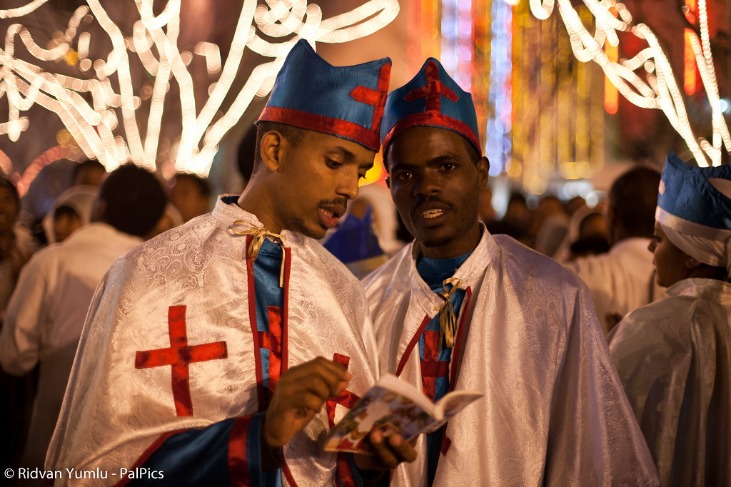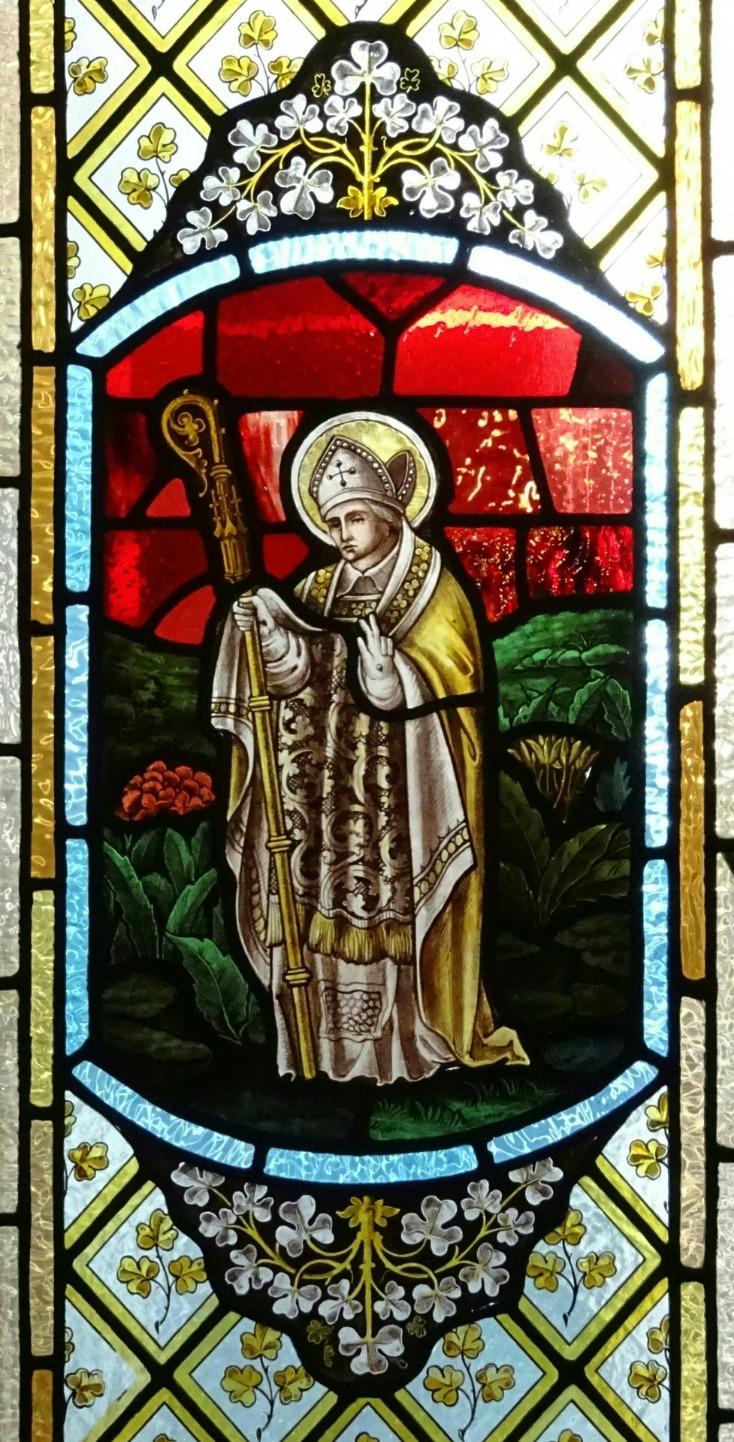Historical Background of Christianity in Ethiopia
Christianity in Ethiopia has a rich and ancient history, tracing back to the early centuries of the Christian era. It is believed to have been introduced in the 4th century AD, making Ethiopia one of the first regions in the world to officially adopt Christianity as a state religion. The Ethiopian Orthodox Tewahedo Church became a central part of the nation’s cultural and spiritual identity, deeply influencing its history, traditions, and societal development over the centuries.
Early Adoption of Christianity in the Aksumite Empire
Christianity in Ethiopia has a profound historical background that dates back to ancient times, making it one of the earliest regions to adopt the faith. The earliest adoption of Christianity in Ethiopia is closely linked to the Aksumite Empire, which thrived from approximately the 1st to the 8th century AD. According to tradition, the conversion of the Aksumite King Ezana in the 4th century marked the official Christianization of the empire, making Ethiopia one of the first nations to embrace Christianity as its state religion. This early adoption was influenced by trade links and cultural exchanges with the Roman and Byzantine Empires, as well as by the missionary efforts of St. Frumentius, who is credited with introducing the faith to the Aksumite court. The Christianization of Ethiopia laid the foundation for a distinctive religious identity that persists to this day, characterized by unique traditions, sacred texts, and a resilient Christian community.
The Role of King Ezana and the Christianization of Ethiopia
Christianity in Ethiopia has ancient roots, making it one of the earliest regions to adopt the religion. The historical background of Christianity in Ethiopia is closely linked to the profound influence of the Kingdom of Aksum, a powerful ancient civilization that flourished from approximately the 1st to the 8th centuries AD. Central to this transformation was King Ezana, who reigned during the early 4th century and played a pivotal role in the Christianization of the region.
King Ezana was instrumental in officially adopting Christianity as the state religion around 330 AD, marking a significant turning point in Ethiopian history. Under his leadership, Christianity was introduced through the efforts of Christian missionaries, possibly from the Roman Empire or neighboring regions. Ezana’s support for Christianity not only unified his diverse realm but also established a lasting religious heritage that would shape Ethiopian identity for centuries to come.
The Christianization of Ethiopia was further reinforced by the establishment of churches and the translation of Christian texts into Ge’ez, the classical liturgical language. Ethiopia thus became one of the earliest countries to officially embrace Christianity, with the Ethiopian Orthodox Tewahedo Church remaining a central religious institution. This historical event set the foundation for the enduring presence of Christianity in Ethiopia, influencing its culture, traditions, and society up to the present day.
Development of the Ethiopian Orthodox Tewahedo Church
The history of Christianity in Ethiopia dates back to the early centuries of the first millennium, making it one of the oldest Christian communities in the world. According to tradition, Christianity was introduced to the region by the missionary efforts of the Apostle St. Matthew, while historical evidence suggests the influence of early Syrian and Coptic Christian missions. In the 4th century, King Ezana of the Aksumite Empire officially adopted Christianity as the state religion, establishing it as a central part of Ethiopian identity. Over subsequent centuries, Ethiopian Christianity evolved with unique customs and liturgical practices, largely influenced by Coptic traditions from Egypt. The development of the Ethiopian Orthodox Tewahedo Church, as a dominant religious institution, was marked by the preservation of ancient texts, religious art, and liturgical rites, which remain distinct today. The church played a vital role in shaping Ethiopian culture, identity, and resistance against various foreign influences throughout history, helping to maintain Christianity as a core element of Ethiopian society. Its development was also influenced by periods of both cooperation and conflict with external powers, including the Ottoman Empire and European colonial forces, ultimately contributing to the resilience and continuity of Ethiopian Christianity over centuries.
Denominations and Religious Practices
Christianity in Ethiopia is a rich and diverse faith, encompassing various denominations and religious practices. These traditions have shaped the cultural and spiritual landscape of the nation for centuries. Understanding the different Christian groups and their practices provides insight into Ethiopia’s unique religious identity and heritage.
The Ethiopian Orthodox Tewahedo Church
The Ethiopian Orthodox Tewahedo Church is one of the oldest and most significant Christian denominations in Ethiopia, with a history dating back to the 4th century. It uniquely combines elements of ancient Judaism and early Christianity, reflecting Ethiopia’s deep religious heritage. The church is known for its rich liturgical traditions, including elaborate ceremonies, fasting practices, and unique sacraments. Its doctrines emphasize the importance of monasticism, veneration of saints, and adherence to the Ethiopian biblical canon, which includes several books not found in other Christian traditions. The church’s practices also involve the use of distinctive liturgical languages, religious icons, and vibrant festivals that are central to Ethiopian Christian identity. As a major religious institution, the Ethiopian Orthodox Tewahedo Church continues to play a crucial role in the spiritual life and cultural preservation of Ethiopia, shaping the religious practices and beliefs of millions of Ethiopian Christians worldwide.
Protestant and Evangelical Movements
Christians in Ethiopia predominantly belong to the Ethiopian Orthodox Tewahedo Church, which is one of the oldest Christian traditions in the world. However, within the broader Christian community, there are also significant Protestant and Evangelical movements that have been growing rapidly in recent decades. These denominations emphasize personal faith, the authority of the Bible, and evangelism, often distinct from the liturgical practices of the Orthodox Church.
Protestantism in Ethiopia includes a variety of denominations such as Baptists, Pentecostals, and Anglican churches. These groups often focus on individual conversions, modern worship styles, and active missionary work. Evangelical movements, a subset of Protestantism, prioritize experiencing a personal relationship with Jesus Christ and spreading the Gospel through outreach and community services. Despite these differences, the Christian community in Ethiopia is diverse and continues to evolve, reflecting both ancient traditions and contemporary religious expressions.
Coptic Christianity and its Influence
Christians in Ethiopia, particularly those belonging to the Coptic Christian tradition, have a profound influence on the country’s cultural and religious landscape. The Coptic Orthodox Church of Alexandria, which has historically served as the spiritual foundation for Ethiopian Christianity, embodies distinctive denominations and religious practices that have shaped Ethiopian identity and societal norms.
- The Ethiopian Orthodox Tewahedo Church is one of the oldest Christian denominations in the world, dating back to the 4th century.
- Its religious practices include elaborate liturgies, fasting rituals, and pilgrimages to holy sites such as Lalibela and Aksum.
- The church maintains unique customs, such as the use of religious icons, elaborate church architecture, and the celebration of unique feast days like Timket (Epiphany).
- The language used in religious services traditionally includes Ge’ez, an ancient liturgical language that preserves the continuity of Ethiopian Christianity.
- Denominations within Ethiopian Christianity often blend biblical teachings with indigenous traditions, creating a distinct religious identity.
Through these practices and denominations, Ethiopian Christianity, rooted in Coptic traditions, has significantly influenced the country’s language, arts, festivals, and social structures, cementing its role as a vital aspect of Ethiopian cultural heritage.
Practices and Rituals
Christianity in Ethiopia is characterized by a rich array of denominations and religious practices that reflect the country’s deep religious heritage. The Ethiopian Orthodox Tewahedo Church is the predominant denomination, with unique liturgical traditions, ancient rituals, and sacred texts that have been preserved for centuries. Other Christian groups such as Protestants and Roman Catholics also have a presence, each contributing their own practices and rituals to the religious landscape. In Ethiopian Christianity, religious practices often include elaborate liturgies, fasting, prayer, and pilgrimage to holy sites like Lalibela and Axum. Rituals such as baptism and holy communion are meticulously observed, often accompanied by traditional music and dance that highlight the spiritual significance of these ceremonies. Religious celebrations, especially Epiphany and Christmas, are marked with vibrant processions, icon veneration, and community gatherings, reflecting the central role of faith in Ethiopian society. These practices and rituals serve to strengthen community bonds and reinforce the spiritual identity of Ethiopian Christians across various denominations.
Religious Institutions and Holy Sites
Religious institutions and holy sites play a central role in the spiritual and cultural life of Christians in Ethiopia. These sacred places serve as centers of worship, pilgrimage, and community gathering, reflecting the rich history and deep-rooted faith of Ethiopian Christianity. From ancient monasteries to legendary churches, these sites embody the enduring traditions and devotion of the Ethiopian Christian community.
Major Churches and Monasteries
Ethiopia has a rich Christian heritage, with numerous religious institutions and holy sites that hold significant spiritual and historical importance. Major churches and monasteries serve as centers of worship, pilgrimage, and cultural preservation for the Ethiopian Orthodox Tewahedo Church, one of the oldest Christian denominations in the world.
Significance of Lalibela and its Rock-hewn Churches

Religious institutions and holy sites hold a profound significance for Christians in Ethiopia, reflecting the deep-rooted Christian heritage of the country. Among these revered sites, Lalibela stands out as a symbol of faith and historical importance. The Lalibela Rock-hewn Churches, carved directly into the rugged volcanic rock, are considered a miraculous achievement of Ethiopian Christianity and are often referred to as the “Eighth Wonder of the World.” These churches serve as a vital pilgrimage destination for Ethiopian Orthodox Christians, embodying spiritual devotion and cultural identity. The site not only demonstrates extraordinary architectural skill but also represents Ethiopia’s enduring Christian tradition, bridging centuries of religious history and community life. Lalibela’s churches continue to inspire faith, reverence, and unity among Ethiopian Christians and visitors from around the world.
Religious Festivals and Holy Days
In Ethiopia, Christianity, particularly Ethiopian Orthodoxy, plays a significant role in shaping religious institutions and holy sites. The Ethiopian Orthodox Tewahedo Church oversees numerous ancient churches and monasteries, many of which are UNESCO World Heritage sites, such as Lalibela’s rock-hewn churches and the Holy Trinity Cathedral in Addis Ababa. These sites serve as important pilgrimage destinations, attracting followers from around the world and preserving centuries-old religious traditions.
Religious festivals and holy days are central to Ethiopian Christian life. One of the most important celebrations is Timket (Epiphany), observed with elaborate rituals, processions, and water ceremonies that commemorate baptism in the Jordan River. Another prominent festival is Meskel, which celebrates the discovery of the True Cross by Queen Helena. During these holy days, communities gather in churches and public spaces to participate in prayers, processions, and feasts, reinforcing the spiritual and cultural fabric of Ethiopian Orthodox Christianity.
Role of Christianity in Ethiopian Society and Culture
Christianity, particularly the Ethiopian Orthodox Tewahedo Church, has played a vital role in shaping Ethiopian society and culture for centuries. It influences various aspects of daily life, from traditions and customs to national identity and social values. The faith’s deep-rooted presence has contributed to Ethiopia’s rich history and enduring cultural heritage, making Christianity a central pillar in the nation’s collective identity.
Influence on Art, Music, and Literature
Christianity plays a central role in Ethiopian society and culture, profoundly shaping the nation’s identity and social fabric. It is deeply woven into everyday life, public traditions, and national consciousness, with the Ethiopian Orthodox Tewahedo Church being a vital institution for spiritual guidance and community cohesion. The religion influences social values, festivals, and national holidays, reinforcing a shared cultural heritage among Ethiopians.
In terms of art, Christianity has inspired a rich tradition of religious iconography, monastic murals, and illuminated manuscripts that reflect biblical scenes and saints. These artworks are characterized by their vibrant colors and spiritual symbolism, serving both devotional purposes and cultural preservation. Ethiopian church architecture, with its distinctive stone and brick structures topped by domes and crosses, also exemplifies the integration of religious beliefs into local artistic expression.
Music and literature in Ethiopia are deeply intertwined with Christian themes, textures, and liturgical practices. Traditional Ethiopian Christian music features unique vocal styles, chantings, and instruments like drums and kereb horns, used during church services and festivals. Literary works, including sermons, religious poetry, and theological writings, have historically contributed to the preservation and dissemination of Christian teachings, enriching the cultural landscape of Ethiopia and fostering a sense of spiritual identity across generations.
Christianity and Education
Christianity, particularly Ethiopian Orthodox Christianity, plays a vital role in shaping the society and culture of Ethiopia. It influences social norms, moral values, and community interactions, serving as a unifying force among diverse ethnic groups. Religious festivals, rituals, and church traditions are deeply embedded in daily life, fostering a strong sense of identity and continuity with historical heritage.
Christianity also profoundly impacts education in Ethiopia. Many of the country’s oldest schools and universities have Christian origins, and religious institutions often run educational facilities that promote moral teachings alongside academic curricula. Christianity encourages literacy and learning, helping to preserve ancient manuscripts and promote cultural pride. Overall, Christianity remains a cornerstone of Ethiopian societal and educational development, shaping the nation’s values and intellectual pursuits.
Christian Values in Social and Moral Norms
Christianity has played a fundamental role in shaping Ethiopian society and culture for centuries. As one of the oldest Christian nations in the world, Ethiopia’s adoption of Christianity, particularly since the 4th century, has deeply influenced its traditions, holidays, and societal structures. The Ethiopian Orthodox Tewahedo Church, in particular, is a cornerstone of national identity and community life, guiding moral principles and social practices.
Christian values are deeply embedded in the social and moral norms of Ethiopian society. Principles such as love, compassion, forgiveness, and hospitality are emphasized through religious teachings and are reflected in everyday interactions. These values foster a sense of community, mutual support, and respect among Ethiopians, reinforcing social cohesion and stability. Additionally, Christian ethics influence family life, leadership, and justice, ensuring that moral conduct aligns with religious teachings. Overall, Christianity continues to be a vital influence in maintaining ethical standards and cultural identity in Ethiopia.
Challenges and Contemporary Issues
Christians in Ethiopia face a variety of challenges and contemporary issues that impact their religious practices, social harmony, and cultural identity. These issues are often intertwined with political, social, and religious dynamics within the country, reflecting broader struggles for religious freedom, minority rights, and societal cohesion. Understanding these challenges is essential to appreciating the complexities faced by the Christian community in Ethiopia today.
Religious Tensions and Interfaith Relations
Christianity in Ethiopia faces various challenges and contemporary issues, particularly related to religious tensions and interfaith relations. These complexities are influenced by historical, social, and political factors that shape the religious landscape of the country.
- Religious Tensions: Conflicts sometimes emerge between different Christian denominations, such as the Ethiopian Orthodox Tewahedo Church and Protestant groups, leading to social divisions.
- Interfaith Relations: Tensions can also arise between Christians and adherents of other faiths, notably Islam, resulting in localized clashes and a need for dialogue.
- Government Policies: Sometimes, government regulation and policies aimed at managing religious groups can inadvertently heighten tensions or marginalize certain communities.
- Social Integration: Challenges in integrating Christian communities with minority religions contribute to misunderstandings and suspicion among different groups.
- Global Influence: External influences, including international religious movements and political interests, impact local religious dynamics and sometimes exacerbate existing tensions.
Modernization and Urbanization’s Impact on Christianity
Christianity in Ethiopia faces numerous challenges and contemporary issues stemming from modernization and urbanization. Rapid urban growth often leads to the displacement of traditional religious communities and shifts in social values, which can affect church attendance and religious practices. Modernization introduces secular influences and alternative beliefs that may diminish the prominence of traditional Ethiopian Christianity, especially among the youth. Additionally, urbanization creates new opportunities for interfaith dialogue, but also increases religious tensions in diverse urban environments. These changes require Ethiopian Christians to adapt to a rapidly evolving societal landscape while maintaining their faith and cultural identity amidst the pressures of modernization.
Government Policy and Religious Freedom
Christians in Ethiopia face a range of challenges and contemporary issues related to government policy and religious freedom. Despite being the predominant religious group, Ethiopian Christians often encounter restrictions that impact their religious practices and community activities. Government policies sometimes impose limitations on religious gatherings, particularly when there are fears of extremism or political instability, which can hinder the free expression of faith. Additionally, religious tensions between different faith communities, including Orthodox Christians, Protestants, and evangelical groups, occasionally lead to conflicts and social discord. Ensuring religious freedom remains a complex issue for the Ethiopian government, as it balances maintaining national stability with respecting the rights of Christian communities. These challenges underscore the ongoing struggle to promote a policy environment that upholds religious liberty and fosters harmonious coexistence among Ethiopia’s diverse religious groups.





0 Comments